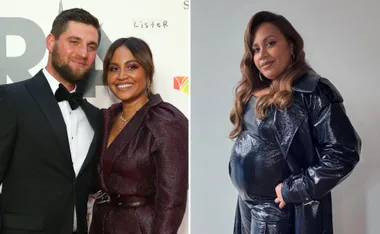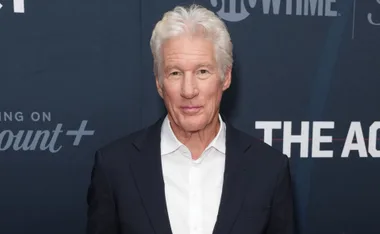Hilary Swank is not one to do anything by halves. She has built her career playing underdogs — women who struggle to overcome adversity through dedication and hard work — and in the process has earned two Oscars (Boys Don’t Cry in 1999 and Million Dollar Baby in 2004).
Her own tough beginnings growing up an outsider in a low-rent trailer park have forged an actress as driven as the women she portrays.
In pictures: Celebrities who love getting married
“I’m just a girl from a trailer park who had a dream,” she said in her first Oscar acceptance speech. And now she explains why she understands the women she plays. “I grew up in a lower-income family,” she says, matter-of-factly. “And at age seven, I learned what class-ism was, because a lot of my friends’ parents didn’t want me playing with their kids.
“They would tell them, ‘It’s time to come in’, if they were with me. Or, if I was at their place, they’d say, ‘Hilary you need to leave’. I just can’t understand how they could do that to a child. But I guess we’ve all felt like an outsider at some point, and so my friends became characters in movies.”
Hilary’s story is almost as dramatic as her on-screen roles. At 15, she left school for Hollywood with her mother. They had so little money they slept in their old car and called agents from pay phones. And yet she doesn’t view this existence as negative. “It gave me a lot to pull from. I was just trying to live my dream.”
Parts in TV shows, including a season on Beverly Hills 90210, from which she was fired, led less than a decade after she arrived, to Boys Don’t Cry and the Oscar.
Meeting her, you understand that this did not happen by chance. Rehearsing her role as a transgender teen in Boys Don’t Cry, she passed herself off as a man for weeks before filming began, fooling neighbours and friends in the process (at 24, she also lied about her age, saying she was 21, to get the part).
For Amelia, the story of Amelia Earhart, the first female aviator to attempt to fly solo around the world, Hilary learned to fly.
And she gained 8.5kg of muscle and trained for six months to play a broke waitress driven to be a boxer in Clint Eastwood’s Million Dollar Baby.
For Hilary’s latest movie, Conviction — the true story of Betty Anne Waters, an unemployed single mother who, in real life, spent 18 years becoming a lawyer to free her brother who had been wrongfully imprisoned for murder, she gained 7kg and learned off by heart a two-and-a-half hour recorded interview with her character, before she even tackled the script, just to get the accent right.
“These roles that I’m blessed enough to get the opportunity to play — they make my heart beat fast. Am I going to be able to pull it off? Can I do justice to the story? My homework just settles my nerves.”
Even so, she says she drives to work going, “Please don’t let me mess up.” You believe her when she says it takes her a month after shooting a film to get back to her old self.
Related: Reviews of Conviction
This vulnerability shows a refreshingly human side to her, because here’s the strange thing about Hilary. Despite her brace of Oscars, she is surprisingly below the stellar radar. We don’t feel we know her, or look out for a Hilary Swank movie the way we do with a Sandra Bullock comedy or an Angelina Jolie thriller romp.
Could it be that we remember the characters, not the actress? “It’s true,” she tells me. “I’ve been playing real-life people who are ordinary people with extraordinary experiences. Like Betty Anne [in Conviction], I really relate to that. I choose stories that move and inspire me. Getting to walk in these women’s shoes, even briefly, has been a wonderful challenge.”
Read more of this story in the April issue of The Australian Women’s Weekly.


Video: Hilary Swank discusses her latest movie role











